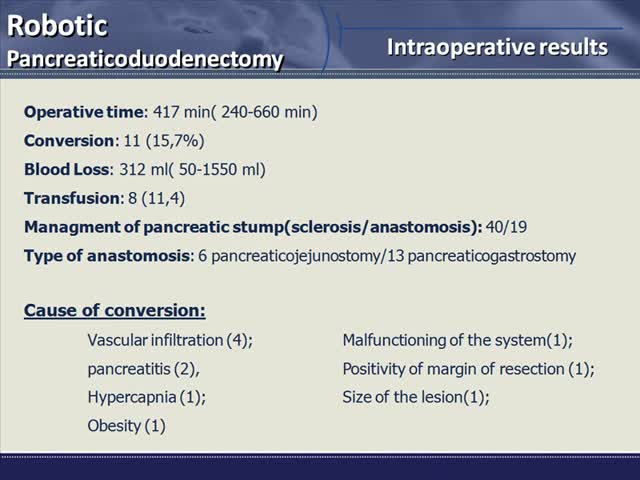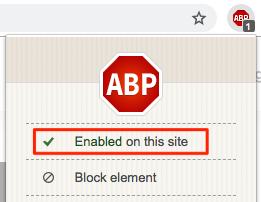
Chicago 2009 Video – Robotic Pancraticoduodenectomy: Experience with 70 Cases
January 13, 2010
P. Addeo
SUMMARY
This presentation describes a single surgeon ( Prof; PC Giulianotti) experience on robotic pancreaticoduodenectomy over a period of 9 years at two different centers. The intraoperative outcomes of 70 consecutive robotic Whipple’s operation are analyzed and the main technical points of this complex minimally invasive operation underlined.
Background/Hypothesis
Minimally invasive pancreaticoduodenectomy (PD) is a technically demanding procedure performed only in few centers worldwide. Laparoscopy has not gained popularity for this operation due to the technical intrinsic limitations of this approach. Robotic assistance may overcome these difficulties expanding the advantages of minimally invasive surgery for pancreatic surgery.
Materials & Methods
From May 2001 to July 2009 70 robotic PD has been performed. Data of patients undergoing robotic PD at the two different centres by a single surgeon were retrospectively reviewed.
Technique
All the procedures were performed with the da Vinci system. After a preliminary phases consisting of hybrid procedures (laparoscopy-robotic/15 cases), the procedures were performed by a full robotic technique. Six trocars were generally used. Exploratory laparoscopy and ultrasound exploration were performed in all the patients to rule out irresectability. The dissection of the portal vein at retropancreatic tunnel, the exposure and dissection of the uncinate process and the pancreatico-enteric reconstruction resulted particularly facilitated by robotic assistance. The distal pancreatic stump was managed as for open surgery (sclerosis/anastomosis) according to consistency of the pancreatic tissue and the characteristics of the duct.
Results
There were a total of 70 patients (36 women and 34 men) with a mean age of 64 years (range, 28-86). Conversion rate was 15.7 % (11/70). Overall postoperative morbidity was 28.5 % and mortality was 4.2 %. Pancreatic fistula occurred in 20% of patients who underwent a pancreatico-enterico reconstruction. The mean operative time was 420 min (range 240-660 min) and the mean blood loss was 310 ml (range 50-1500). The mean number of retrieved lymph node for malignant lesions was 18 (range 2-45).
Conclusions
Robotic pancreaticoduodenectomy is feasible, safe and with complication and mortality rates comparable to open surgery, while at the same time maintaining the advantages of minimally invasive surgery. A longer follow-up is needed to evaluate the survival rates for this technique.







